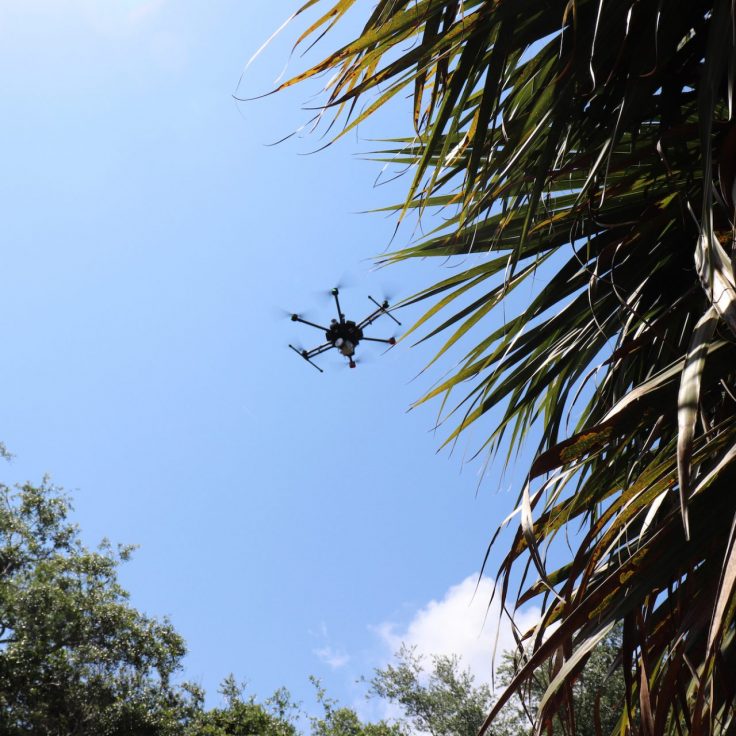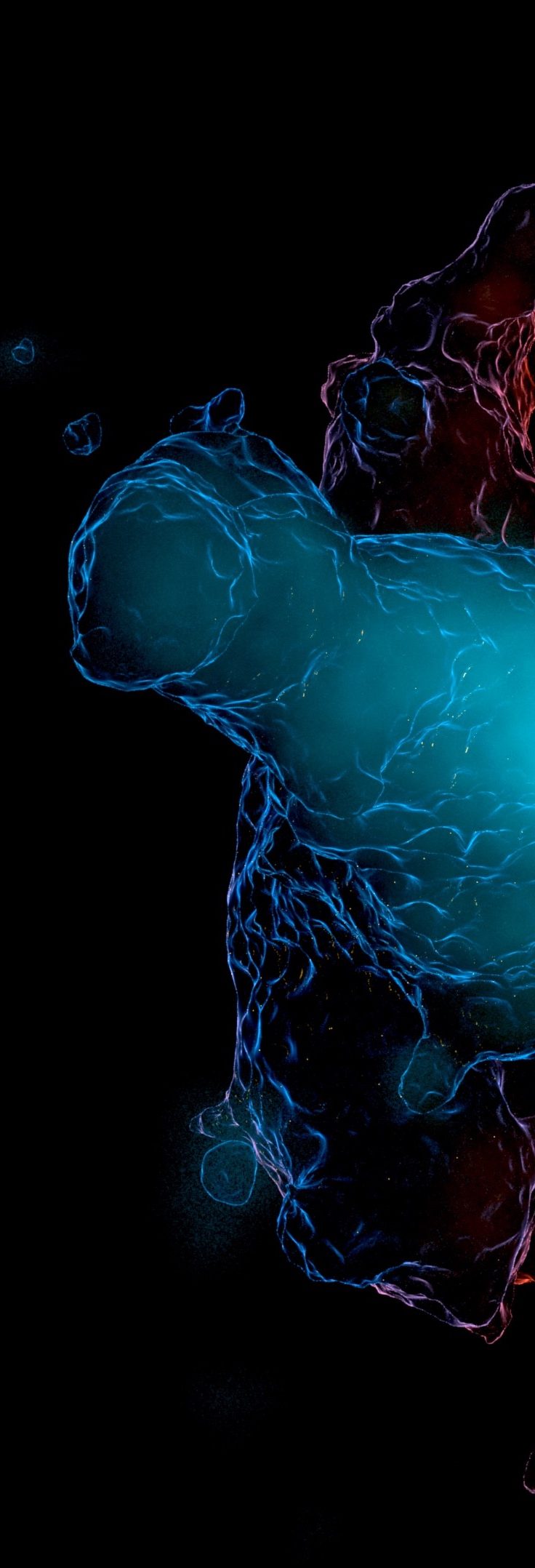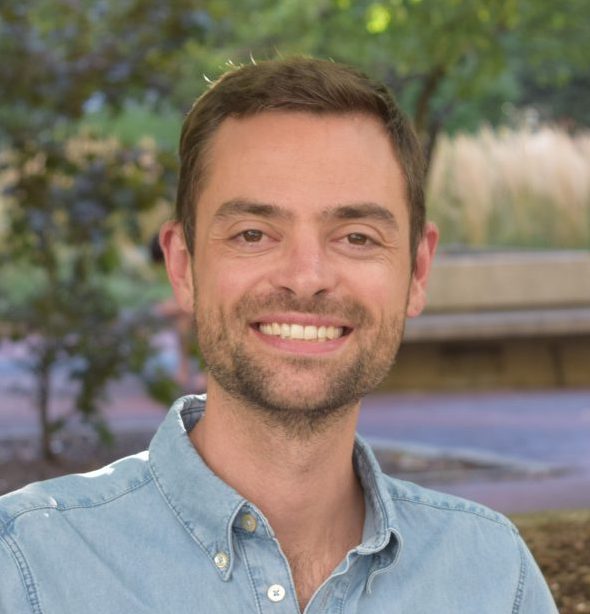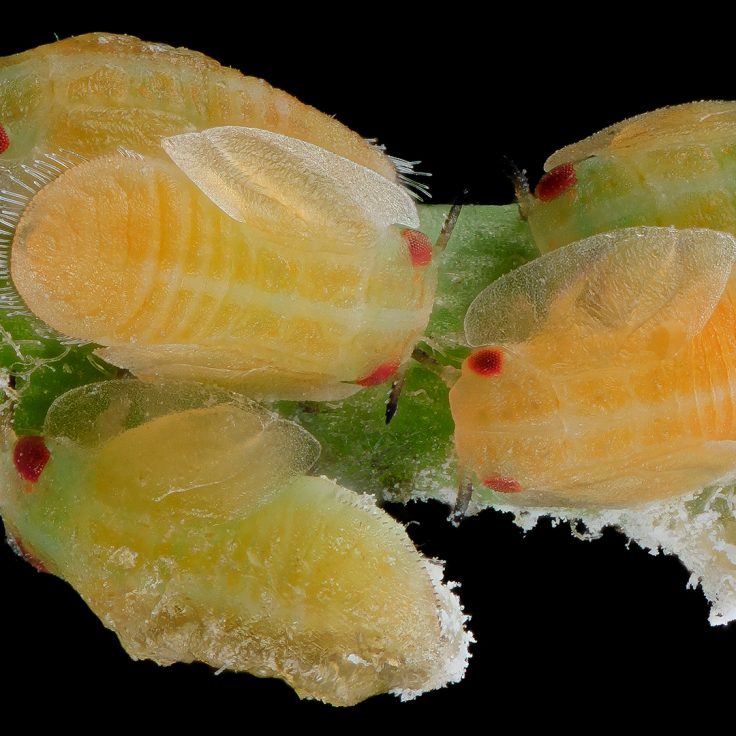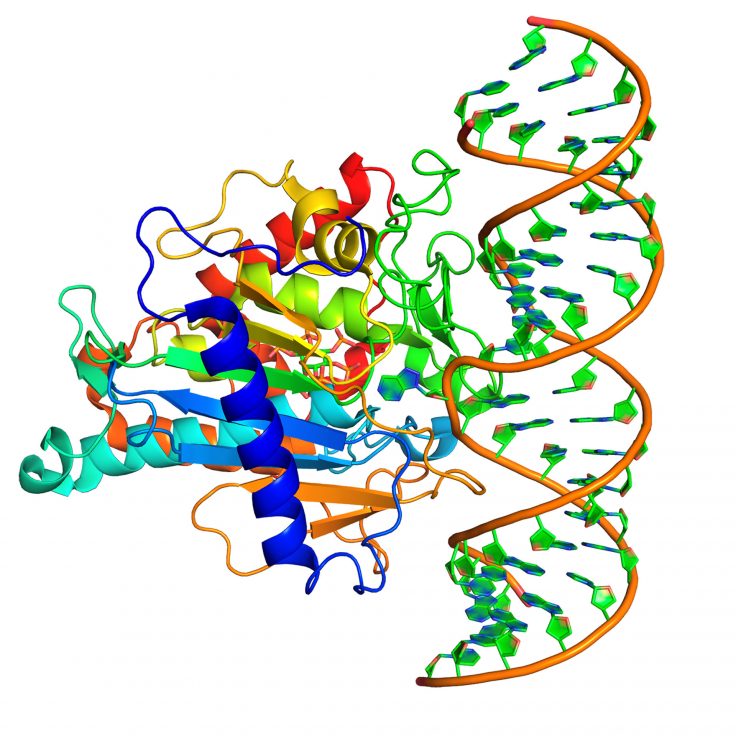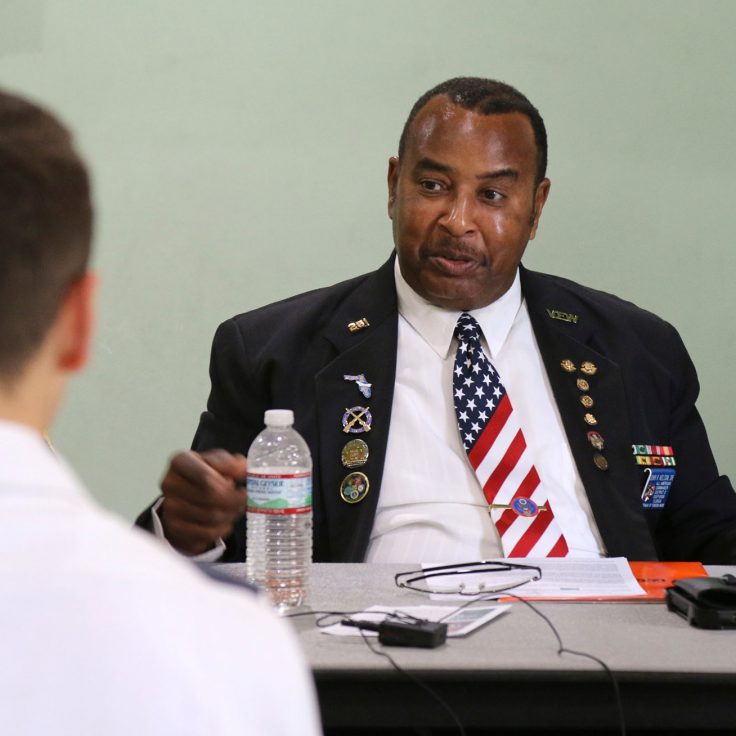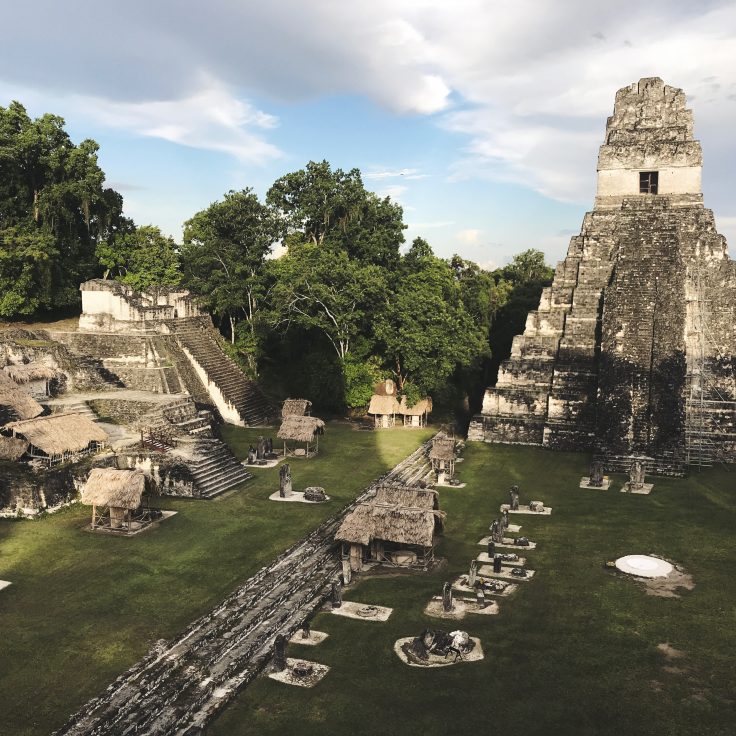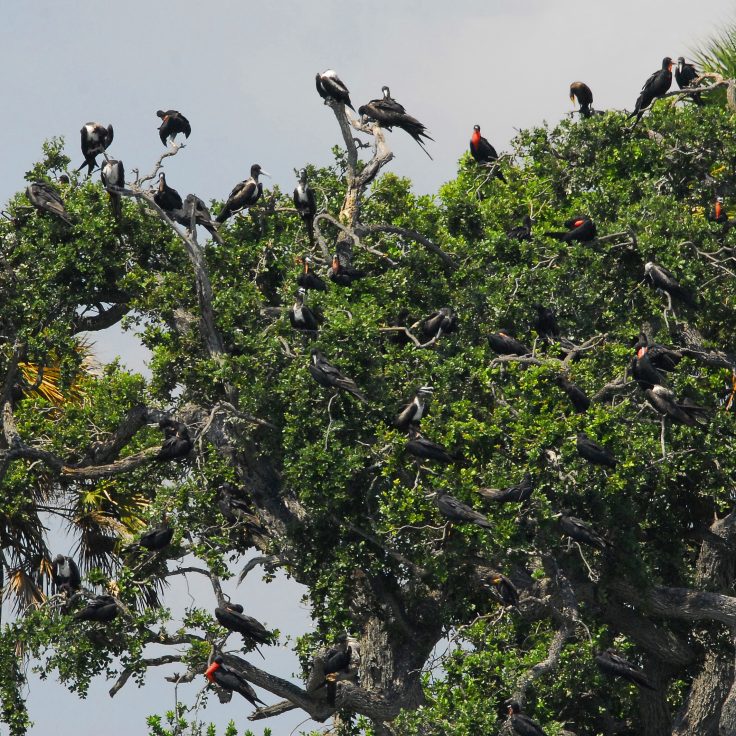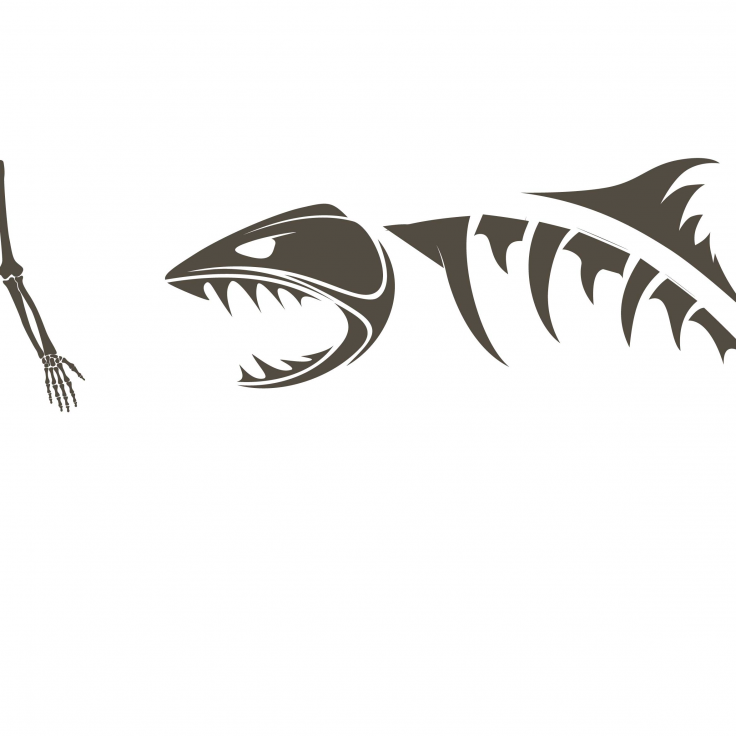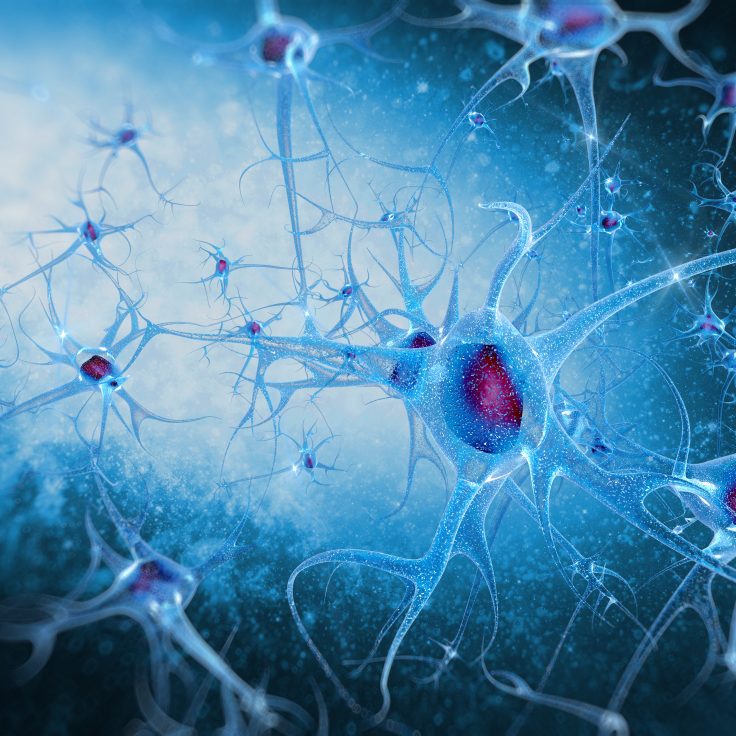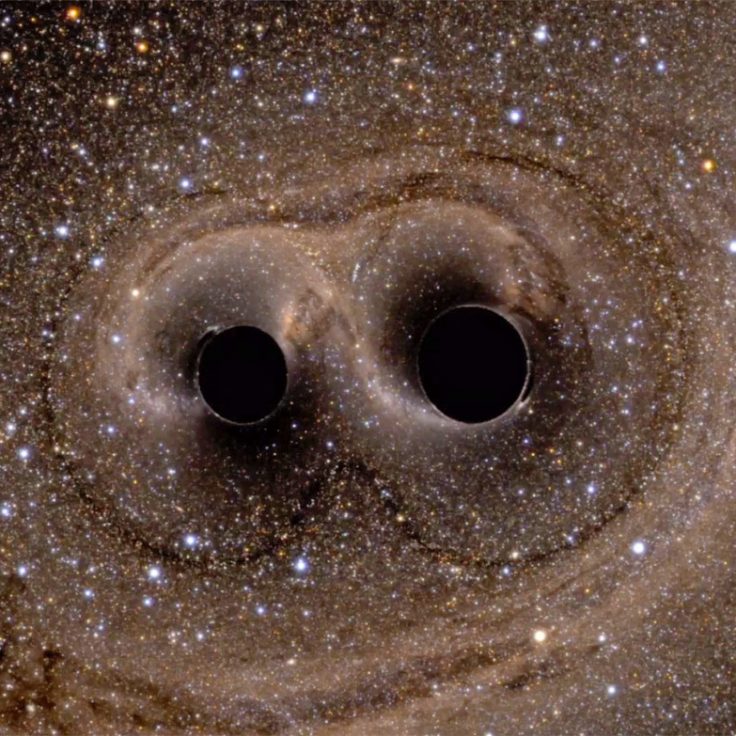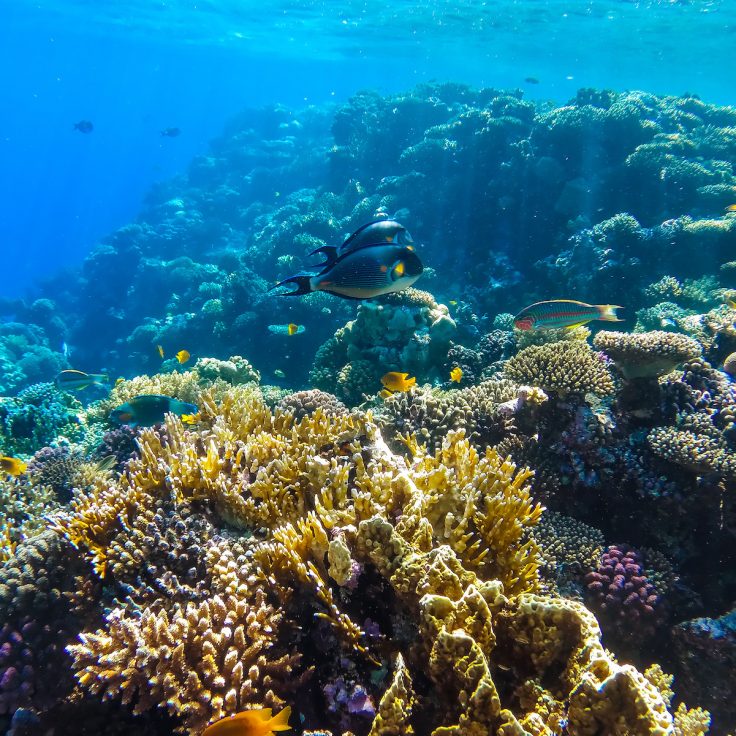Research News
Could Humans Regenerate Teeth like Sharks?
New research into the similarities between shark and human teeth shows humans have more potential to regrow teeth than previously believed.
UF Researchers Use Drones to Reveal Secrets of Ancient Florida Village
A team of UF researchers has uncovered how an ancient Florida village played a pivotal role in pre-Columbian geopolitics.
UF Astronomer Helps Discover Huge Nebula Formed by Galactic Winds
A team of astronomers including UF's Paul Sell discovered a huge, glowing nebula surrounding a massive galaxy 5.8 billion light years away. Read what the findings tell us about galactic winds.
UF Philosophy Professor Awarded NSF Grant to Study Predictive Policing
Police departments use artificial intelligence to predict crime before it happens. This UF philosophy professor wants to know how to do so ethically.
UF Chemistry Professor Awarded NSF Grant to Build Open Network for Molecular Science
University of Florida chemistry professor Adrian Roitberg will work as part of a multi-university team on a new project that has received nearly $1 million to advance molecular sciences though machine learning.
Where the Oranges Aren’t so Orange
A new study by UF medical geographer Sadie Ryan maps risk areas for citrus greening and provides critical information for citrus production and crop management moving forward.
Looking Deep Inside the Ancient Earth
With a mathematical time machine, UF Geologist Alessandro Forte and his collaborators reconstructed what the Earth's interior looked like 55 million years ago.
Corrupting the Immune System
New research from members of the Department of Biology at UF could help us to better understand Zika.
Civil Rights Bootcamp
The Samuel Proctor Oral History Program hosted visiting West Point cadets for a crash course in racial equality, led by civil rights movement veterans and activists.
Ancient Mayan deforestation had long-term effects on watershed carbon cycles
Researchers: Mark Brenner, brenner@ufl.edu, 352-392-7226, Jason Curtis, curtisj@ufl.edu PIO: Rachel Wayne, 352-872-2620 The lowlands of Mexico and Guatemala experienced widespread deforestation by the Maya beginning about 4,000 years ago. The region has never fully recovered. Ancient Maya environmental impact provides a case study for the long-term effects of deforestation, and according to a new Nature […]
The Starving Snakes of Seahorse Key
Mysteriously vanished waterbirds. Cannibalistic snakes. An island with no freshwater except for rainfall. It may sound like a Crichton novel or SyFy original movie, but it’s the reality of Seahorse Key, part of the Gulf Coast Cedar Keys that University of Florida biologists have been researching since the 1930s, when the renowned late zoologist Archie Carr first began studying the unusually large cottonmouth population there.
Solving Cosmic Puzzles
Neutron stars are dead stars collapsed into the densest form of matter known to humans, with a teaspoon of neutron star matter weighing a billion tons, and their collision creates a swath of galactic debris. Decades ago, stargazing scientists formed plans to detect signals from this debris. Now, in the new era of aptly named “multi-messenger astronomy,” two international projects have achieved this goal: On August 17 of this year, the Laser Interferometer Gravitational-Wave Observatory (LIGO)’s two U.S.-based interferometers and the Virgo Collaboration’s Italy-based interferometer detected for the first time gravitational waves — ripples in space-time traveling at the speed of light — from the collision and subsequent merger of two neutron stars. The detection occurred just three days after yet another “chirp” from colliding black holes.
Bones Got Bite
Anthropological analysis of shark bites provides a new standard for forensic science.
A Route to Recovery
UF psychologist Lori Knackstedt studies an antibiotic that may cure cocaine addiction. Lori Knackstedt, professor of psychology, is seven years deep into research that’s yielded some surprising results: in cocaine-addicted rats, an antibiotic reduces their drug-seeking behavior and may prevent relapse. The drug Ceftriaxone appears to increase reuptake of glutamate, a neurotransmitter that regulates dopamine, […]
From K–T to Kermit
Among UF’s renowned team of extinction experts is David Blackburn, whose appreciation for frogs has led to his work on a groundbreaking new study. A paper published in July in the Proceedings of the National Academy of Sciences (opens in new tab) shows that although frogs have been around for longer than dinosaurs, most of the world’s 6,700-plus living species of frogs evolved after a mass extinction 66 million years ago made way for new biodiversity.
Third Time’s a Charm
LIGO detects third set of gravitational waves from colliding black holes. UF physicists have played a key role in these detections.
Makin’ Waves
Marine biologist and UF Biology alumnus Mike Gil PhD’15 has been named a TED Fellow and is one of 21 international experts who will attend and speak at this year’s TEDGlobal, TED’s annual conference, which will take place in Arusha, Tanzania in August. “I'm truly honored by the distinction,” says Gil.
Professor of Anthropology Receives ACLS Fellowship
Professor of Anthropology Richard Kernaghan receives an ACLS fellowship for new book project.
You May Recycle, But You’re Still Not Cool
UF researchers conduct first implicit bias research on environmentalist attitudes and behaviors.
Professor of Chemistry Wins SEC Faculty Achievement Award
The Iron Man of UF has won again. Professor of Chemistry George Christou, known for his research in nano-magnets, has received the SEC Faculty Achievement Award for his accomplishments. The Southeastern Conference, an athletic association comprising 14 academic institutions, has honored one faculty member from each institution for the past six years. This year, they […]
